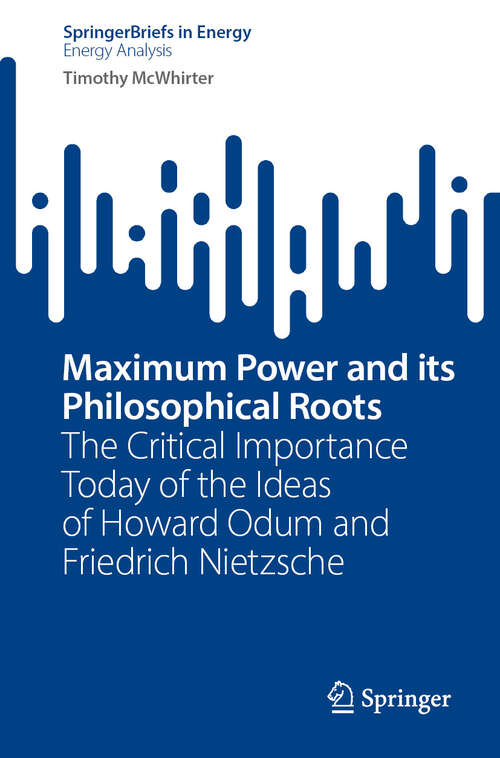Maximum Power and its Philosophical Roots: The Critical Importance Today of the Ideas of Howard Odum and Friedrich Nietzsche (SpringerBriefs in Energy)
By:
Sign Up Now!
Already a Member? Log In
You must be logged into Bookshare to access this title.
Learn about membership options,
or view our freely available titles.
- Synopsis
- This Briefs volume focuses on the maximum power principle, which was created by the mathematician and physical chemist Alfred Lotka, and further developed and utilized most prominently by the systems ecologist H. T. Odum, who applied it to different physical, biological, ecological and economic systems. They both described this principle providing a thermodynamic framework for evolutionary theory. This principle has a philosophical heritage that has, until now, gone unrecognized. The 19th century philosopher Friedrich Nietzsche viewed his concept of the will to power as an empirical principle that describes how organic and inorganic systems develop in ways that grow in power. This book describes this interdisciplinary story: it discusses the development of both principles, reviews the empirical and theoretical support for them, critically examines their alleged limitations, and describes their philosophical implications, evidenced in a particularly provocative manner by Nietzsche's and Odum's critiques of moral and religious values.
- Copyright:
- 2025
Book Details
- Book Quality:
- Publisher Quality
- ISBN-13:
- 9783031806223
- Related ISBNs:
- 9783031806216
- Publisher:
- Springer Nature Switzerland
- Date of Addition:
- 03/14/25
- Copyrighted By:
- The Editor
- Adult content:
- No
- Language:
- English
- Has Image Descriptions:
- No
- Categories:
- Nonfiction, Science, Philosophy
- Submitted By:
- Bookshare Staff
- Usage Restrictions:
- This is a copyrighted book.
